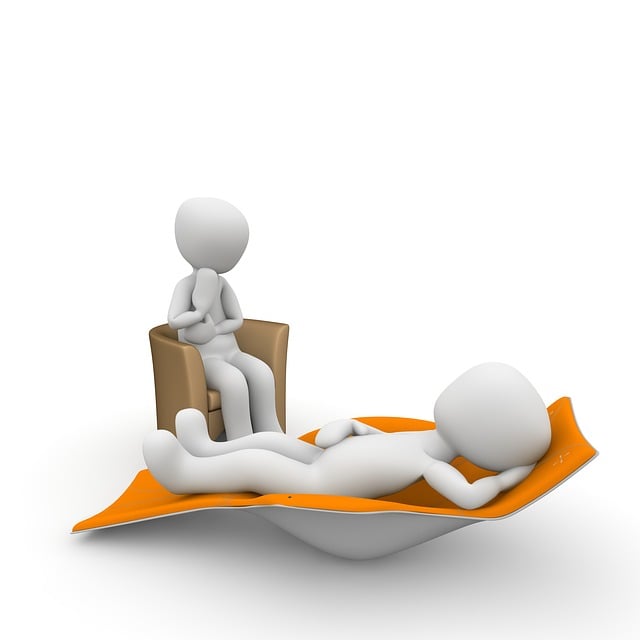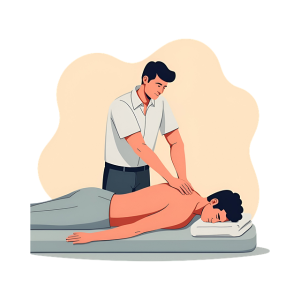Stress relief therapy combines evidence-based techniques like cognitive reframing, mindfulness meditation, progressive muscle relaxation, and deep breathing exercises to manage stress effectively. Individualized approaches include nature activities, creative outlets, and self-reflection through journaling. Cognitive Behavioral Therapy (CBT) targets negative thought patterns, while mindfulness practices enhance emotional resilience and present-moment focus. Physical exercise reduces stress's impact on health, and social support lowers cortisol levels and provides practical coping strategies. Incorporating these diverse methods fosters well-being and boosts resistance to daily stressors.
“Unravel the power of therapeutic stress coping mechanisms and discover effective ways to manage and reduce stress. This comprehensive guide explores a range of techniques designed to promote mental well-being. From cognitive behavioral therapy (CBT) and mindfulness practices to the benefits of physical exercise and social support, each section delves into personal strategies for stress relief. Discover how these therapeutic tools can transform your approach to managing stress and enhance your overall quality of life.”
Understanding Therapeutic Stress Coping Mechanisms

Therapeutic stress coping mechanisms are essential tools in managing and alleviating the impact of stress, offering individuals effective ways to navigate challenging situations. These mechanisms go beyond mere relaxation techniques; they are evidence-based practices designed to help folks cope with stressful events, promoting mental well-being. By understanding these coping strategies, one can unlock powerful tools for stress relief therapy.
Stress relief therapy encourages the adoption of various techniques, such as cognitive reframing, mindfulness meditation, progressive muscle relaxation, and deep breathing exercises. These methods foster a sense of control, allowing individuals to challenge negative thought patterns and replace them with more positive and realistic ones. Mindfulness practices, in particular, have gained prominence for their ability to enhance self-awareness and present-moment focus, thereby reducing the intensity of stressful responses.
Identifying Personal Stress Relief Therapy Techniques

Unwinding and finding personal stress relief is a journey unique to each individual. It involves exploring various therapy techniques tailored to one’s needs and preferences. Some turn to nature for solace, engaging in activities like hiking or gardening, which have been proven to reduce stress hormones and improve mood. Others find refuge in creative outlets such as painting, writing, or playing music, allowing them to express emotions and gain new perspectives. Mindfulness practices, including meditation and deep breathing exercises, are also powerful tools to cultivate inner peace and calm.
Identifying effective stress relief therapy techniques requires self-reflection and experimentation. Keeping a journal to track thoughts and emotions can help uncover triggers and patterns. Additionally, seeking guidance from professionals like therapists or counselors who can offer personalized recommendations is invaluable. Through this process, individuals can discover sustainable stress management strategies that enhance overall well-being and resilience.
Cognitive Behavioral Therapy (CBT) for Stress Management

Cognitive Behavioral Therapy (CBT) is a highly effective stress relief therapy that focuses on identifying and changing negative thought patterns and behaviors contributing to stress. By challenging unhelpful cognitive distortions, CBT empowers individuals to develop healthier coping strategies. This evidence-based approach teaches practical skills to manage stress, anxiety, and depression, ultimately enhancing overall well-being.
Through CBT, individuals learn to recognize triggers, understand their emotional responses, and replace negative thought cycles with more realistic and positive ones. It involves active participation where patients engage in homework assignments and practice new techniques, fostering self-awareness and resilience in navigating stressful situations.
Mindfulness and Meditation as Stress Mitigation Tools

Mindfulness and meditation have emerged as powerful tools in the arsenal of stress relief therapy. These ancient practices, now backed by modern science, offer a way to calm the mind and soothe the nervous system. By focusing on the present moment and cultivating non-judgmental awareness, individuals can reduce the impact of stressful thoughts and emotions.
Meditative techniques, such as deep breathing exercises and guided visualizations, help regulate the body’s stress response, lowering heart rate and blood pressure. Regular mindfulness practice has been linked to increased emotional resilience, improved cognitive function, and enhanced overall well-being. It encourages individuals to observe their thoughts without getting caught up in them, fostering a sense of detachment from stressful situations.
Physical Exercise: A Powerful Stress Relief Mechanism

Physical exercise serves as a potent and often underrated tool in the arsenal of stress relief therapy. When engaged in regularly, activities like running, yoga, or even brisk walking can significantly mitigate the negative impacts of stress on both physical and mental health. The benefits are multifaceted; exercise stimulates the release of endorphins, known as ‘feel-good’ hormones, which act as natural painkillers and mood elevators, thereby reducing feelings of anxiety and depression.
Moreover, physical activity provides a healthy outlet for tension and frustration, allowing individuals to channel their stress into constructive motion. It offers a break from the demands of daily life, promoting mindfulness and a sense of calm. Incorporating exercise into one’s routine can be a highly effective strategy to manage chronic stress, enhancing overall well-being and fostering resilience in challenging times.
Social Support and Connection in Stress Coping

Social support and connection play a pivotal role in stress coping, serving as potent tools within the realm of stress relief therapy. When individuals feel supported by their social networks, they are better equipped to navigate challenging situations. Whether it’s sharing concerns with friends or receiving encouragement from family, this emotional backing fosters resilience against stress. Research indicates that strong social connections can lower levels of cortisol, a hormone often associated with stress and anxiety.
Beyond direct communication, engaging in activities together can also mitigate stress. Group exercises like yoga or shared hobbies offer not only enjoyable distractions but also create a sense of belonging. In today’s digital era, online communities and support groups have emerged as valuable resources, connecting folks across distances who may be facing similar stressors. These virtual connections can provide comfort, validation, and practical strategies for managing stress in daily life.
